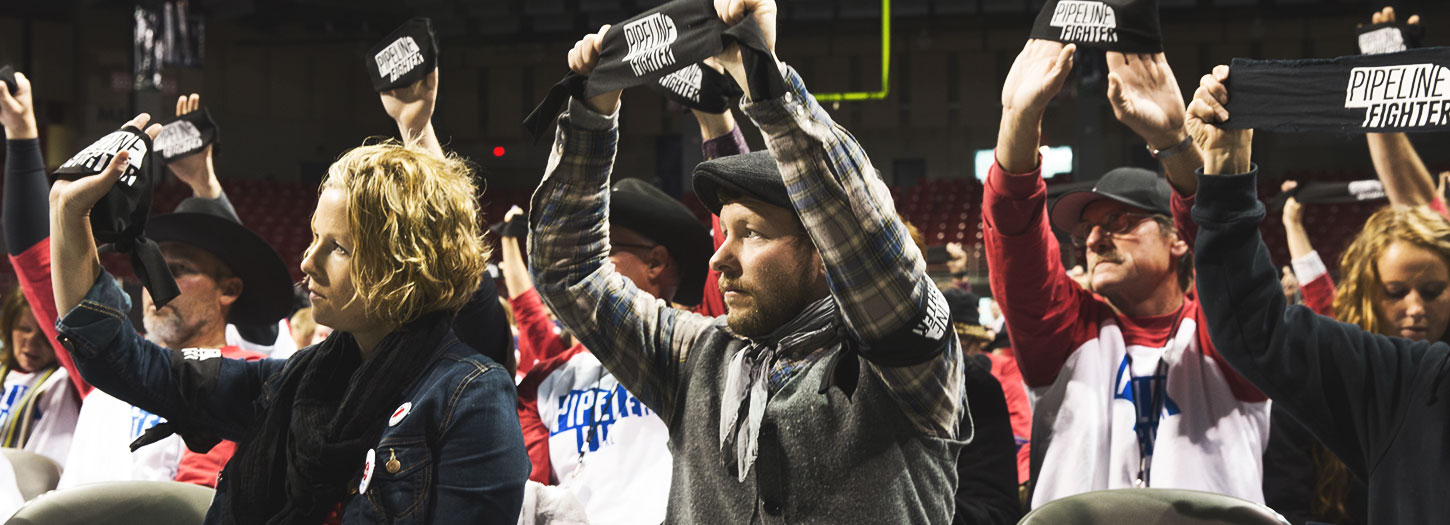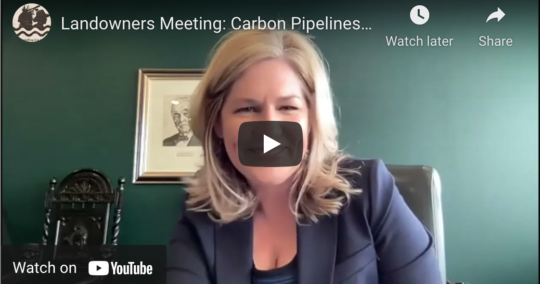

The Nebraska Public Service Commission has scheduled intervenor hearings for Aug. 7-11 to hear testimony on TransCanada’s application to obtain a permit for a route to build its proposed Keystone XL pipeline through Nebraska.
Intervenors are typically represented in the hearings by an attorney, who “conducts discovery, files and responds to motions, makes legal oral arguments in front of the Commission, prepares direct and rebuttal testimony, cross examines adverse witnesses, prepares legal briefs and memorandums, and participates in any appeals of Commission orders.”
You may also choose to represent yourself — as several landowners and other parties did during the similar 2015 Keystone XL review by the South Dakota Public Utilities Commission.
NOTE: The PSC will also hold a number of public hearings where members of the general public will be able to speak and their comments will be included in the official record, as well their written comments — but the “intervenor” hearings are separate and take place in a quasi-judicial setting. Bold will share details on the public hearings PSC plans to hold on Keystone XL when they are announced.
Applications to become an intervenor were due by March 27, and the following applicants were granted intervenor status:
INTERVENORS
- Over 90 landowners on the KXL route, 92 of whom will be represented by Domina Law Group
- Ponca Tribe of Nebraska and Yankton Sioux Tribe
- Bold Alliance, Nebraska Sierra Club
- 350.org, Oil Change International
- 30+ individuals under the umbrella of “Natural Resources Petitioners”
- Pro-pipeline labor unions LiUNA, IBEW, Pipefitters as “Economic Interest Petitioners”
What exactly will the Public Service Commission be reviewing for Keystone XL?
- “The Commission’s review does not include an evaluation of safety concerns, including the potential risks of spills or leaks.”
- “The Commission’s review is limited to the environmental impact of the pipeline if it were to be built and operated along the proposed route. The Commission may consider as it relates to the route:
- 1) an environmental impact study;
- 2) a comprehensive soil permeability study;
- 3) a distance-to-groundwater survey;
- 4) evidence regarding the impact of the pipeline on wildlife;
- 5) evidence regarding the impact of the pipeline on plants located within and surrounding the proposed route; and
- 6) evidence of methods to minimize or mitigate the potential impacts of the major oil pipeline to natural resources.”
General Info on Protesting or Intervening in KXL PSC Process



